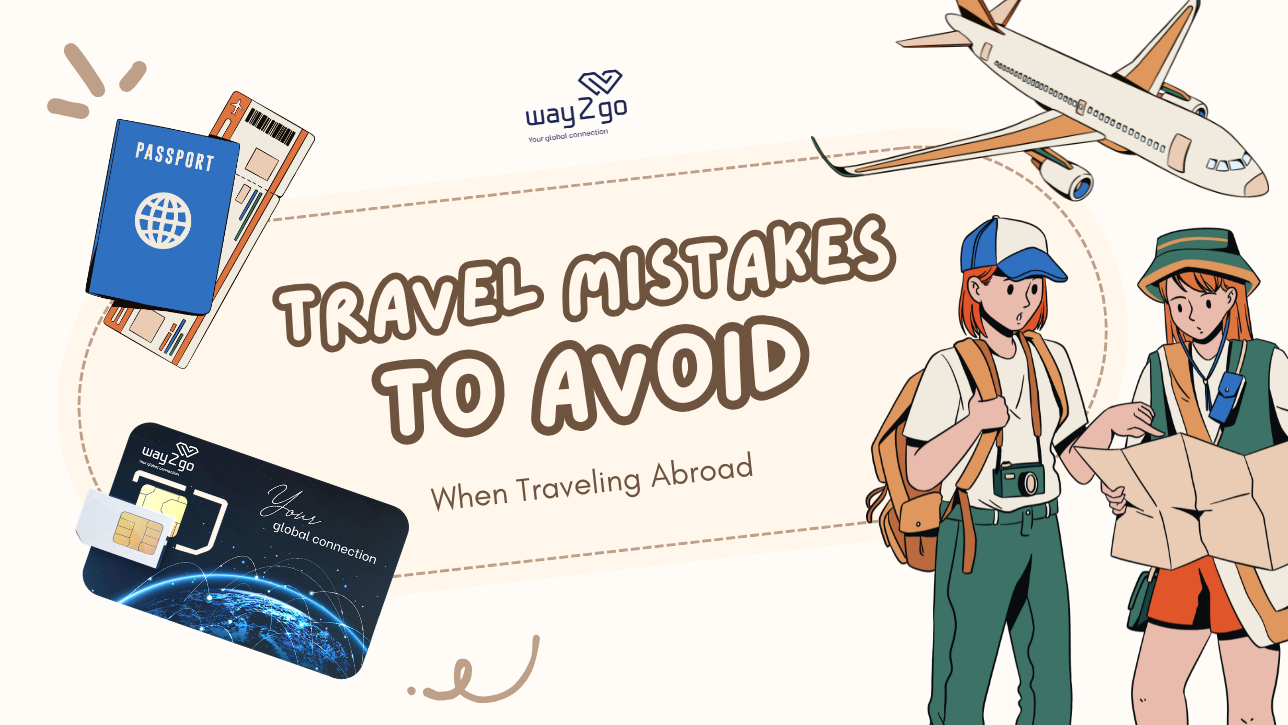
The main content of the article
Traveling abroad is an exciting opportunity to explore new cultures, taste exotic cuisines, and create lifelong memories. However, even the most seasoned travelers can stumble into pitfalls that turn a dream trip into a stressful ordeal. To help you make the most of your international adventure, we’ve compiled a list of the top mistakes to avoid when traveling abroad. Optimize your travel experience with Way2go’s travel safety tips and remember things not to do when traveling right now!
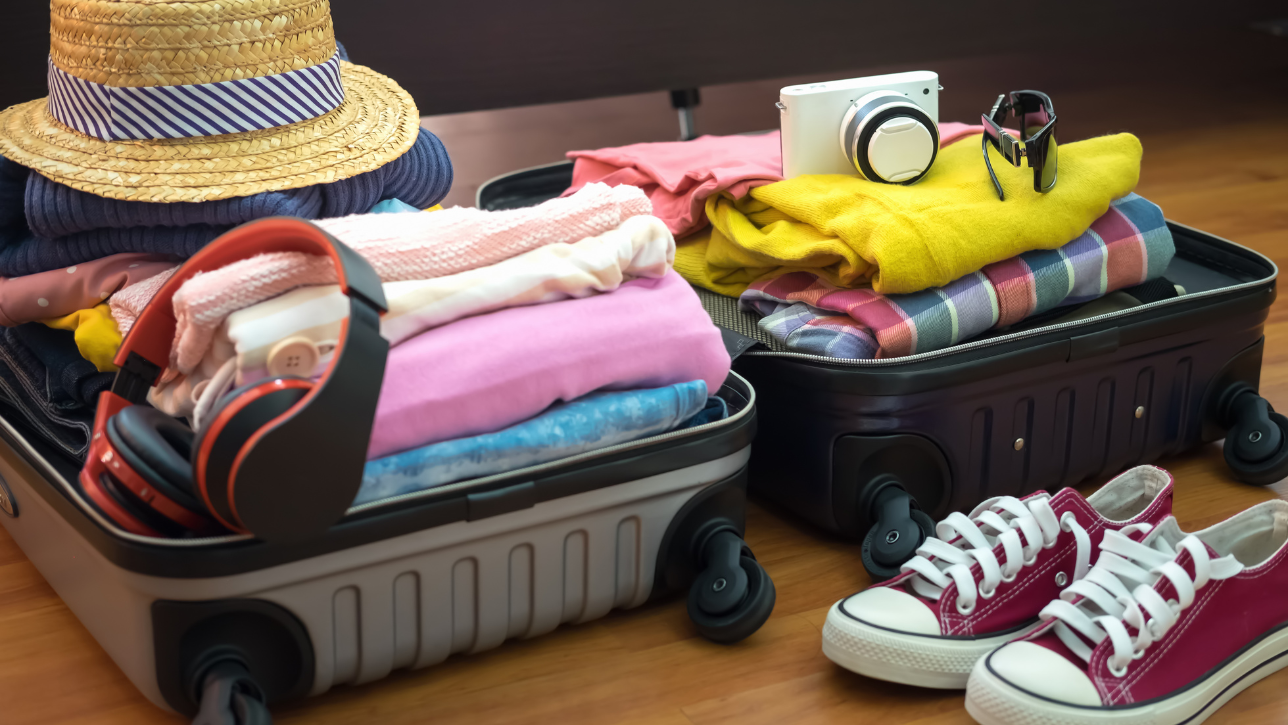
Overpacking your luggage
Overpacking is a classic blunder that weighs you down—literally and figuratively. Heavy bags make navigating airports, train stations, or cobblestone streets a chore. Plus, airlines often charge steep fees for overweight luggage (e.g., $100+ on international flights). Many travelers pack for every “what if” scenario, only to realize they barely use half their stuff.
Pro Tip:
Embrace the art of minimalist packing. Choose versatile clothing—like a neutral jacket or mix-and-match outfits—and limit shoes to two pairs (one comfy, one stylish). Opt for travel-sized toiletries or plan to buy them locally. Use packing cubes to stay organized and leave 20% of your suitcase empty for souvenirs.
Check your airline’s baggage policy ahead of time—some budget carriers are stricter than others.

Ignoring local customs and etiquette
Every culture has its own unwritten rules, and overlooking them can lead to awkward moments or outright offense. For instance, wearing shoes indoors in Japan, pointing with your finger in Thailand, or refusing food in Middle Eastern countries might unintentionally disrespect your hosts. These slip-ups can alienate locals and tarnish your experience.
Pro Tip:
Spend 15-20 minutes researching your destination’s customs. Look up dress codes (e.g., covering shoulders in religious sites), tipping norms (expected in the U.S., rare in South Korea), and basic greetings. Websites like Culture Trip or Lonely Planet offer quick, reliable breakdowns. When in doubt, observe locals and mimic their behavior—it’s the fastest way to blend in.
Carry a small notebook with key phrases or customs as a cheat sheet for tricky situations.

Not having a backup plan for money
Money mishaps can unravel your trip in seconds. A lost wallet, a hacked card, or a bank freezing your account due to “suspicious” overseas charges can leave you stranded. In 2023 alone, travelers reported losing over $1.2 billion to theft or fraud abroad, per industry stats. Relying on a single payment method is a gamble not worth taking.
Pro Tip:
Diversify your funds. Carry a modest amount of local currency (exchange at home for better rates), a primary credit card with no foreign transaction fees (e.g., Chase Sapphire), and a backup debit card stashed separately. Before you leave, alert your bank to your travel dates and destinations to prevent blocks. Download payment apps like PayPal, Venmo, or Wise for emergencies—they’re widely accepted and secure.
Keep emergency cash (e.g., $50-100) in a hidden spot, like a sock or a secret pouch.
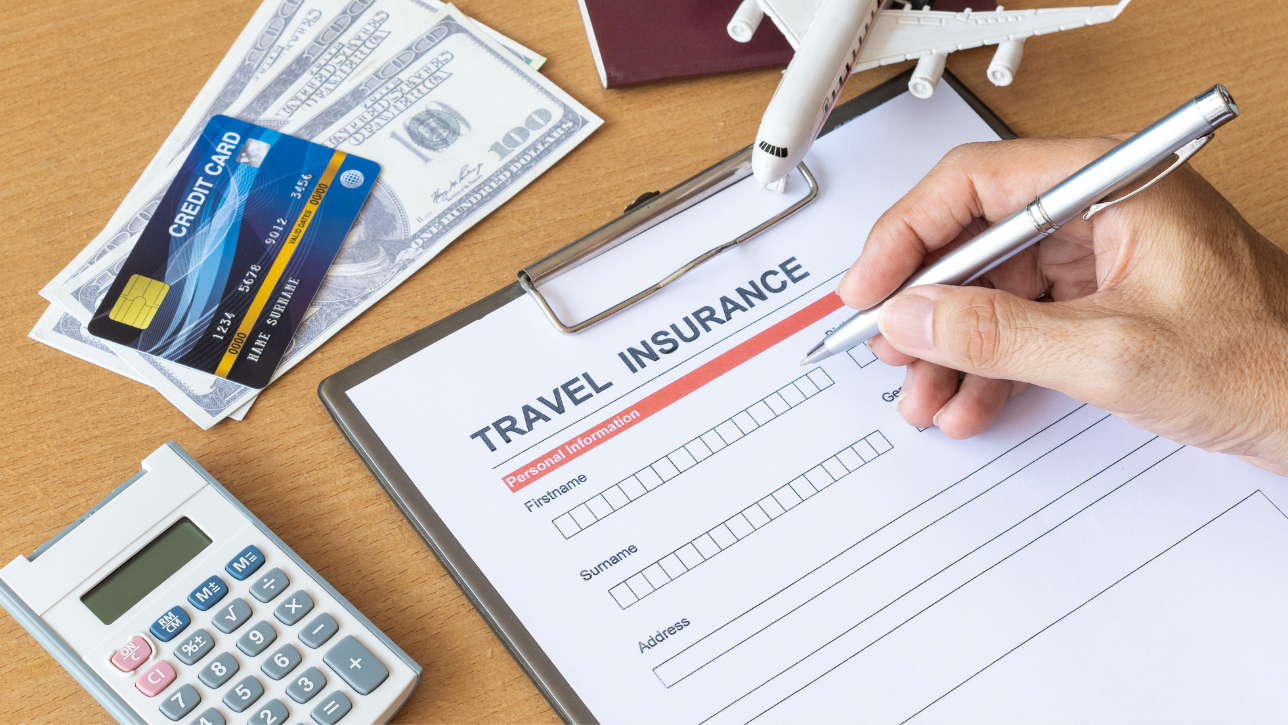
Skipping travel insurance
Unpredictable events—flight cancellations, medical emergencies, or stolen gear—can cost thousands without coverage. A broken leg in Europe might run you $20,000+ without insurance, while a canceled flight could leave you out hundreds. Skipping this safety net assumes nothing will go wrong, which is a risky bet.
Pro Tip:
Invest in a travel insurance policy tailored to your needs. Look for plans covering medical expenses (at least $100,000), trip interruptions, and baggage loss. Compare quotes on sites like InsureMyTrip, Squaremouth, or World Nomads—policies start as low as $30 for a week-long trip. Read the fine print for exclusions (e.g., pre-existing conditions) and file claims promptly if needed.
If you’re a frequent traveler, consider an annual multi-trip plan to save money long-term.
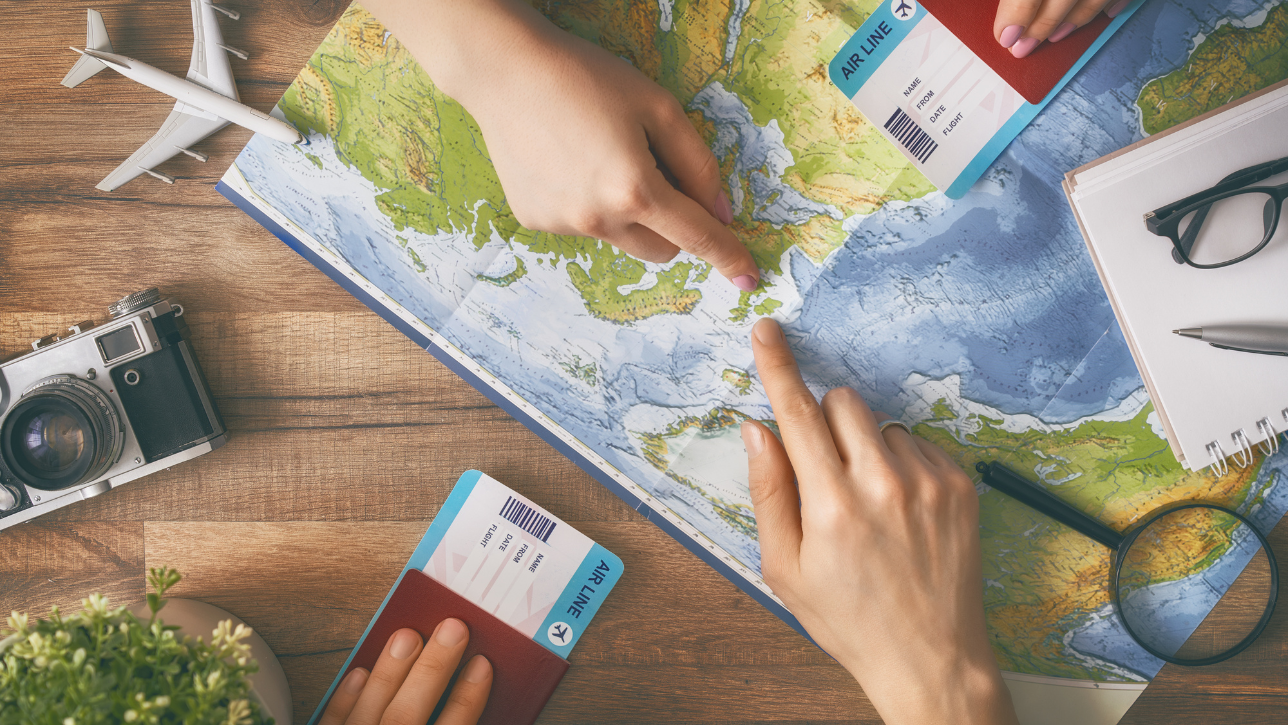
Overplanning (or Underplanning) your Itinerary
Overplanning turns your trip into a rigid checklist—rushing from one landmark to the next without soaking in the vibe. Conversely, underplanning risks missing iconic sights or wasting time figuring out logistics on the fly. Both extremes sap the joy out of travel. For example, overbooked travelers often burn out by day three, while “wing-it” types might skip sold-out attractions like the Louvre.
Pro Tip:
Aim for balance. Book must-do activities (e.g., tours, tickets) in advance, but leave half your days flexible for wandering or resting. Use tools like Google Maps to estimate travel times between spots, and apps like TripIt to sync reservations. A good rule: no more than two major activities per day.
Build in a “buffer day” at the start or end to recover from travel fatigue or explore unexpectedly cool finds.
Why Are Solo Travel Destinations 2025 Booming? Best Places to Go
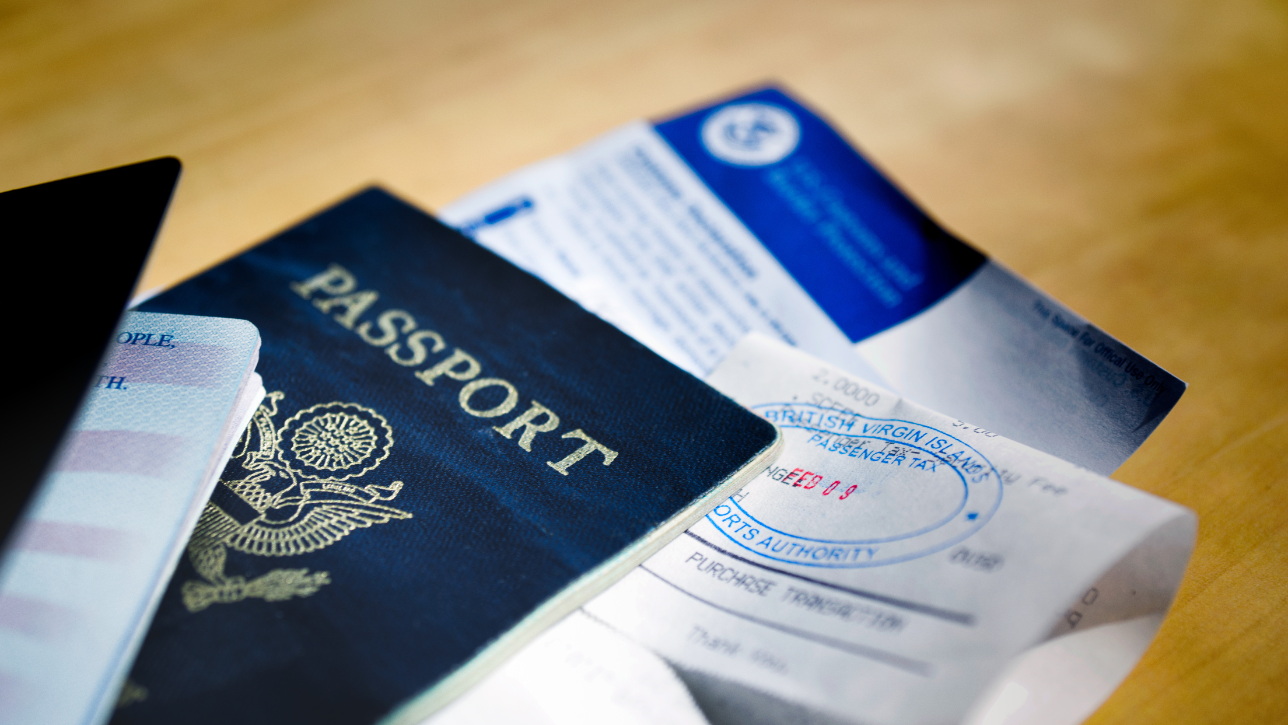
Not checking visa and passport requirements
Entry rules vary wildly by country, and ignorance isn’t an excuse. An expired passport, a missing visa, or a passport with less than six months’ validity (a rule in places like Thailand) can get you turned away at the gate. In 2024, thousands of travelers were denied boarding due to visa oversights, per airline reports.
Pro Tip:
Check requirements on official sites like the U.S. State Department’s travel page or your destination’s embassy website at least three months out. Apply for visas early—some take weeks to process. Renew your passport if it expires within six months of your return date. Scan copies of your documents and email them to yourself as a backup.

Relying solely on technology
Tech is a lifesaver—until it isn’t. A dead phone battery, no Wi-Fi in rural areas, or a cracked screen can leave you lost or mute in a foreign land. Over-reliance on Google Maps or translation apps ignores the reality of spotty service or device failure.
Pro Tip:
Go old-school with backups. Pack a foldable paper map, a pocket phrasebook (Lonely Planet makes great ones), and hard copies of hotel bookings or tickets. Download offline maps (Google Maps or Maps.me) and key phrases on your phone ahead of time. Bring a portable charger with at least 10,000mAh capacity.
Write down your accommodation’s address and phone number on paper—it’s a lifeline if your phone dies.

Eating only familiar foods
Sticking to McDonald’s or Starbucks abroad misses the point of travel: immersion. Local cuisine is a gateway to culture, and avoiding it means skipping a huge slice of the experience.
Pro Tip:
Research signature dishes before you go (e.g., paella in Spain, pad thai in Thailand) and seek out authentic spots via TripAdvisor, Yelp, or local blogs. Start small if you’re picky—try a street vendor’s snack before committing to a full meal. Check hygiene (busy stalls are usually safer) but don’t let fear stop you.
Ask locals for recommendations—they’ll point you to hidden gems tourists overlook.

Forgetting to account for jet lag
Crossing time zones wreaks havoc on your body—think fatigue, irritability, and foggy brain. Ignoring jet lag can tank your first few days, leaving you too wiped to enjoy that sunrise hike or museum tour. A 6-hour time difference can take 3-4 days to adjust to without prep.
Pro Tip:
Ease into it. Shift your sleep schedule 1-2 hours closer to your destination’s time zone a few days before flying. On the plane, skip alcohol, drink water (1 cup per hour), and nap strategically. Once there, get sunlight ASAP to reset your clock, and keep day one light—maybe a casual stroll instead of a packed itinerary.
Melatonin (1-3mg) can help regulate sleep if taken 30 minutes before bed—consult a doctor first.

Not learning basic local phrases
Assuming English is universal sets you up for frustration. In rural areas or non-touristy spots, locals might not speak it, leaving you stuck gesturing at a menu or map. Plus, skipping the language effort can signal disinterest, missing a chance to connect.
Pro Tip:
Learn 5-10 phrases: “hello,” “thank you,” “please,” “excuse me,” “where is the bathroom?” and “how much?” Apps like Duolingo or Babbel make it fun, or grab a phrasebook for quick reference.
Write phrases phonetically (e.g., “merci” as “mare-see”) if foreign alphabets intimidate you.
Traveling abroad doesn’t have to be a minefield of mistakes. With a little foresight—packing smart, respecting customs, securing your finances, and embracing the local scene—you’ll unlock the full magic of your journey. Avoid these 10 pitfalls, and you’ll return home with stories of triumph, not regret. Got a travel mistake you’ve learned from? Drop it in the comments—I’d love to hear your take!
Safe travels, and happy exploring!
📞 Contact and buy Way2go Travel SIM Today!
Website: https://way2go.vn
Hotline: 090.222.7715
Email: [email protected]
Enrich your travel experience while staying connected
